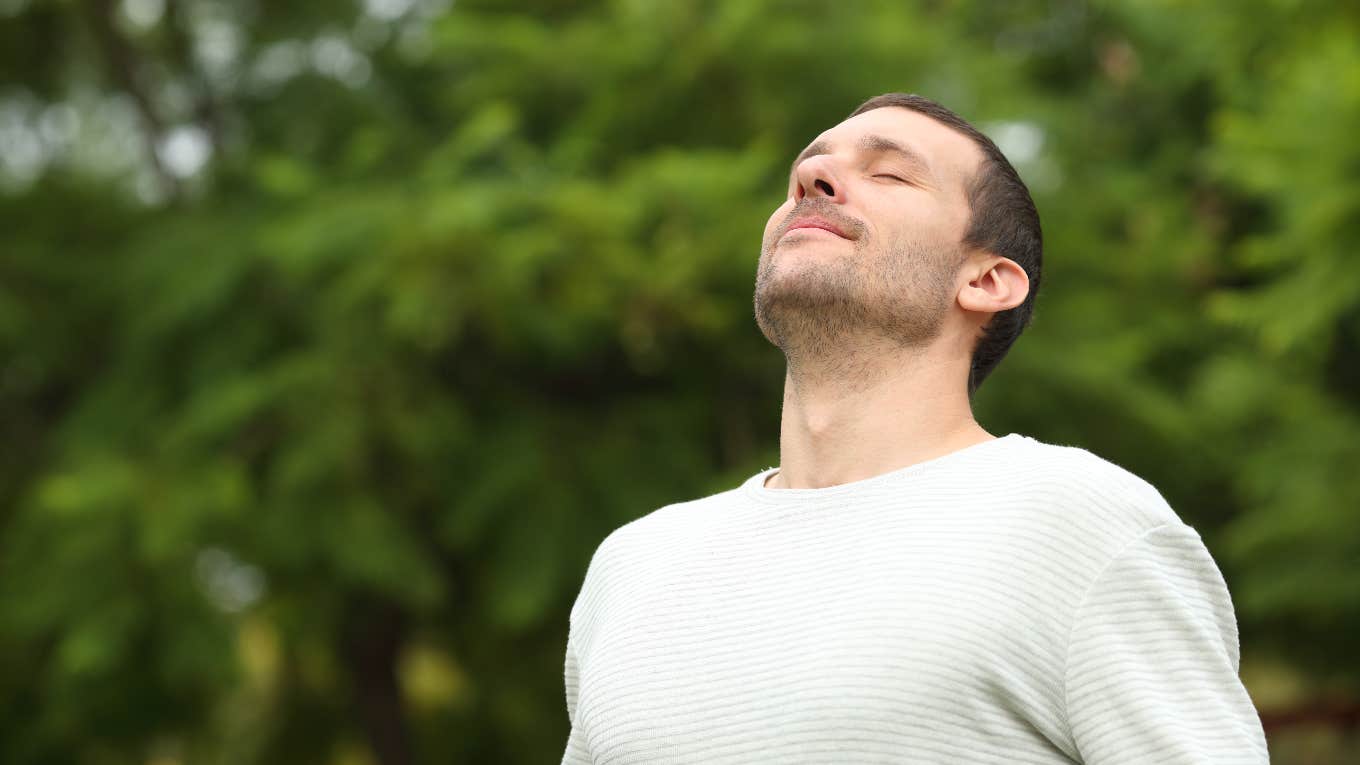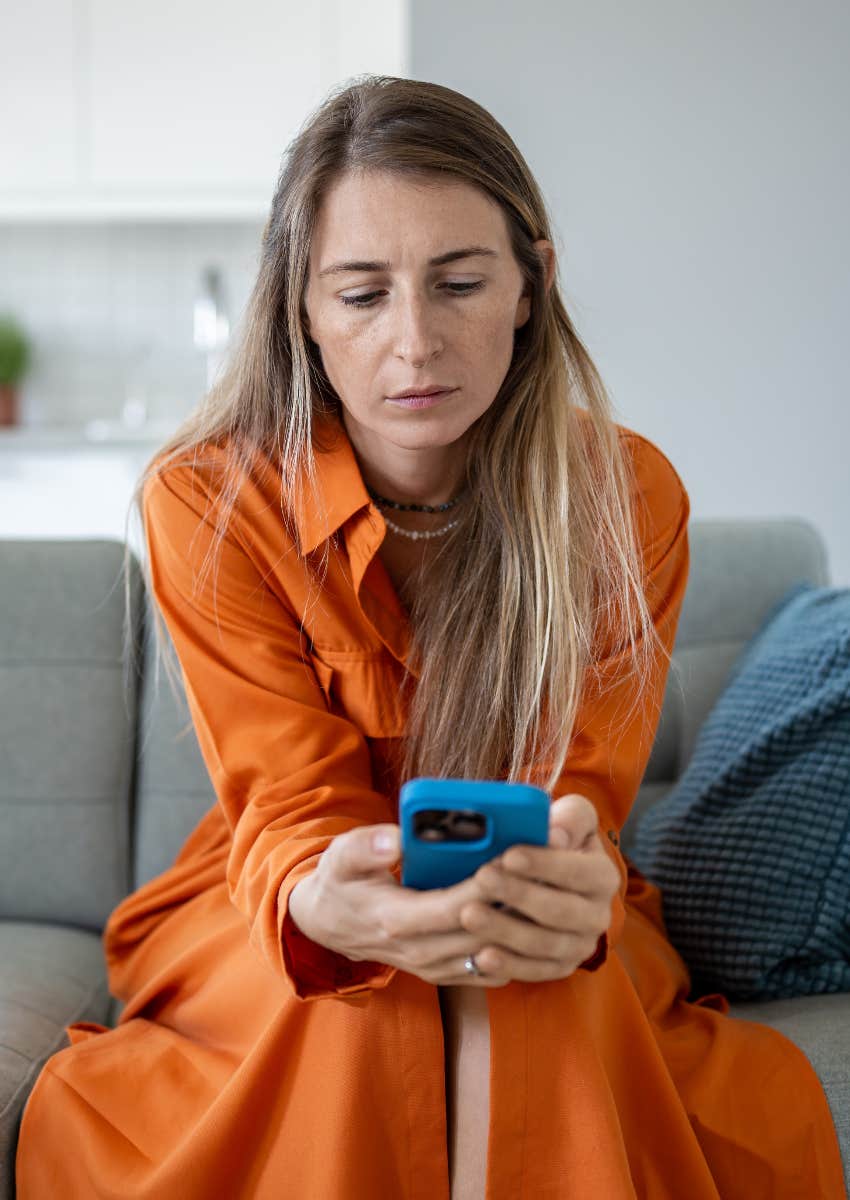Man Explains How Drastically His Life Has Changed In Just One Week Without Using A Smartphone
It's given him a whole new perspective.
 Antonio Guillem / Shutterstock
Antonio Guillem / Shutterstock For most people, our lives are tethered to our smartphones. The thought of going a whole day without it seems nearly impossible, and a week would be world-ending. However, one man was unexpectedly left without his smartphone for a whole week, and he claims the experience was transformative. From regaining a healthy sleep schedule to returning to old hobbies, he feels that his life has improved for the better.
A man went one week without his smartphone and explained exactly how it changed his life.
Voice actor Anthony Foxwell took to TikTok to share the experience of staying off his smartphone for a whole week. He said his phone accidentally got stuck in his partner's luggage when they left for a trip, leaving him phoneless for an entire week. As it turned out, the experience gave him an entirely new perspective.
During the week, he said his sleep schedule naturally "reset," so he was able to go to bed and wake up at a reasonable time. When he was bored, he used the time to read and write to help achieve his dream of becoming an author. Without having his phone as a distraction, he said, "I forgot how much time during the day you actually have."
Foxwell used an old flip phone for listening to music and other purposes, but it was challenging to use social media apps due to their slow loading times, which made him more aware of how much wasted time he spent on the apps. He enjoyed his digital detox so much that he actually ordered another flip phone to replace his smartphone altogether.
The experience has made him realize how much his smartphone affects his autism and ADHD.
Foxwell went so far as to say that he noticed a marked difference in his issues with time awareness and overstimulation from his neurodiversity, which he now attributes to his phone use. He explained that he already struggles with completing certain tasks throughout the day, and overusing his phone left him with even less time, motivation, and resources to get these tasks done.
Foxwell isn't wrong. In a webinar entitled "Time to Unplug? How Screen Time Impacts the ADHD Brain," David Anderson, Ph.D., vice president of School and Community Programs at The Child Mind Institute, explained, "There is ... evidence of a correlation between media use and the severity of ADHD symptoms. Screens may not cause ADHD, but they may play some role — depending on what limits are placed on them and how a child or teen is using them — in exacerbating the way that ADHD symptoms are expressed.”
Previous research has linked symptoms of attention deficit hyperactivity disorder (ADHD) with excessive use of smartphones and the internet. A study performed at Bournemouth University found that certain behaviors that are commonly attributed to ADHD, such as short attention spans and impulsivity, were observed in multiple participants, including some who haven't been diagnosed with ADHD.
Other studies found a link between digital detoxes, specifically social media detoxes, and overall improvement in well-being.
Stanford conducted a study about social media detoxes and how they affect a user's well-being. Participants were asked to deactivate from either Facebook or Instagram in the six weeks leading up to the 2020 U.S. presidential election. The results showed improvements on a self-reported index for happiness, anxiety, and depression after completing the detox.
 DimaBerlin | Shutterstock
DimaBerlin | Shutterstock
Interestingly, the effects of quitting Facebook were more significant for people over 35, and the effects of quitting Instagram were more significant for women under 25. According to the researchers, "The study found that quitting Facebook or Instagram was about one-fifth as effective as the average of psychological interventions such as mindfulness or cognitive behavioral therapy."
Despite these results, the researchers aren't promoting a total abandonment of social media. They want their work to contribute to a larger discussion about technology, social media, and psychological health. Their goal is to provide the information for users to better understand how to mitigate the negative effects.
Realistically, it's about balance. If you feel your smartphone use may be detrimental to your well-being, try setting boundaries and being more mindful about how and when you use your device. Taking a break from technology could help you reconnect with yourself and the world around you.
Kayla Asbach is a writer currently working on her bachelor's degree at the University of Central Florida. She covers relationships, psychology, self-help, pop culture, and human interest topics.

